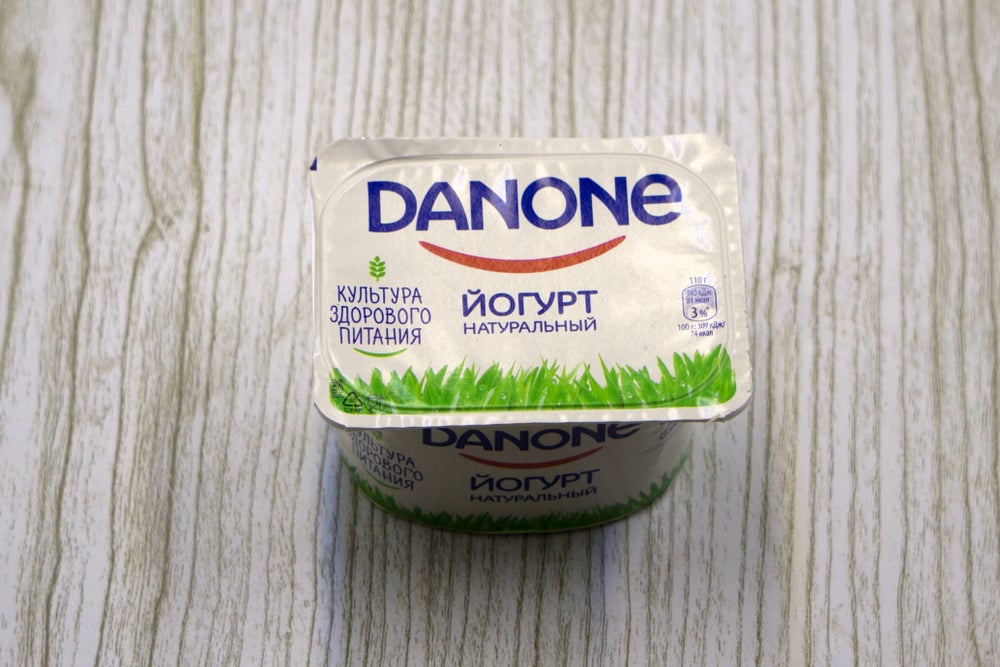
On 16 July, Russia seized control of the local subsidiaries of France’s Danone and Denmark’s Carlsberg under a decree aimed at companies from “unfriendly” countries.
According to a decree by President Vladimir Putin, the shares and assets of Carlsberg’s Baltika Brewing and Danone Russia JSC were to be transferred to Russia’s Federal Property Management Agency for “temporary management”.

Discover B2B Marketing That Performs
Combine business intelligence and editorial excellence to reach engaged professionals across 36 leading media platforms.
Today, it emerged the Kremlin had appointed Yakub Zakriev, a Chechen minister for agriculture, to lead Danone’s Russian subsidiary.
Meanwhile, Taimuraz Bolloev, reportedly a friend of Putin, has been appointed as the head of Carlsberg’s Russian subsidiary, according to the FT.
“It is one thing for Putin to criticise Western firms for pulling out from Russia, as he did at the beginning of his war in Ukraine, but quite another for him to expropriate foreign firms’ assets without compensation,” says Harry Broadman, chair of emerging markets practise at Berkeley Research Group.
This tactic is not new. As early as March 2022, just a month after Russia’s invasion of Ukraine, the Kremlin approved a law that allowed the government to nationalise the property of foreign companies. This was followed by more concrete legislation in April 2023, which saw Putin sign a decree allowing for temporary state control over the assets of companies or individuals from unfriendly states – which include the US and its allies – in response to similar moves, or the threat of them, by those countries. Days after this, Russia took control of utilities owned by Finland’s Fortum Oyj and Germany’s Uniper.

US Tariffs are shifting - will you react or anticipate?
Don’t let policy changes catch you off guard. Stay proactive with real-time data and expert analysis.
By GlobalDataA poetic fate for companies that never left Russia
Since Russia’s invasion of Ukraine, more than 1,000 foreign multinationals have totally divested their operations in the country, but several hundred, such as Carlsberg and Danone, stayed put.
Both Carlsberg and Danone were in the process of selling either their operations in Russia in their entirety or part of their assets. Carlsberg last month announced it had found a buyer for its Russian business. It was back in October when Danone said it would shed its dairy and plant-based business in the country. Last week, the French group said it would rename its Activia dairy brand in Russia to AktiBio in what it described as a “localisation” move.
“The expropriation of Carlsberg and Danone serves those two companies right for not having had a clean exit, as they should have back in 2022,” says Professor Jeffrey A Sonnenfeld from the Yale School of Management. “They stayed on too long. They were trying to be clever. Danone paid lip service to being critical of the war but then stayed there with perhaps half its business. It claimed to only keep its dairy business in Russia but what else does Danone do? It doesn’t do automobiles, clothing or jewellery. It is a dairy and yoghurt maker.
“Carlsberg was even more cynical than Danone since it pledged to leave Russia early on into the invasion. It was a poster child of early-mover courage and conscience, but six months later it had nothing to show for it. After public criticism, it reconsidered again and was close to selling but was then expropriated by Putin.”
It was too little, too late, critics argue. Carlsberg and Danone flew too close to the sun – and hundreds more may get burned.
“Putin is punishing companies that are now trying to leave but it looks like he is going for high-profile consumer brands in Europe that have been vacillating,” says Sonnenfeld. “There are some 400 companies that are still fully operating in Russia. They are next. So we may very well soon see a stampede trying to leave.”
On the other hand, the seizure of the Russian assets of Danone and Carlsberg may lead some companies to abandon any efforts to leave, thereby appeasing Putin (but at the cost of further alienating the anti-Putin ‘international community’). Companies such as Mondelez International, Nestlé and Coca-Cola will be particularly nervous, given how exposed they are to the Russian market, comparatively speaking.
Meanwhile, Putin is threatening that he is going to add additional tax burdens on European companies still operating in Russia, because he wants to further punish the EU.
“This is insane economic self-destruction, but I hope he does it, of course, because that is only going to drive out those cowardly companies still operating in Russia,” says Sonnenfeld. “Economically, Putin only survives by cannibalising his own economy, by throwing in the living room furniture to keep the furnace of war going. He is receiving no direct investment. Global multinationals were a significant part of the Russian economy before the war. Now they are largely gone.”
Putin’s expropriation of Danone and Carlsberg makes little sense if he is interested in attracting foreign investment to rebuild the Russian economy in the post-war era, argues Broadman. “It raises the question: what will be the economic future of Russia?” The question weighs heavy.





